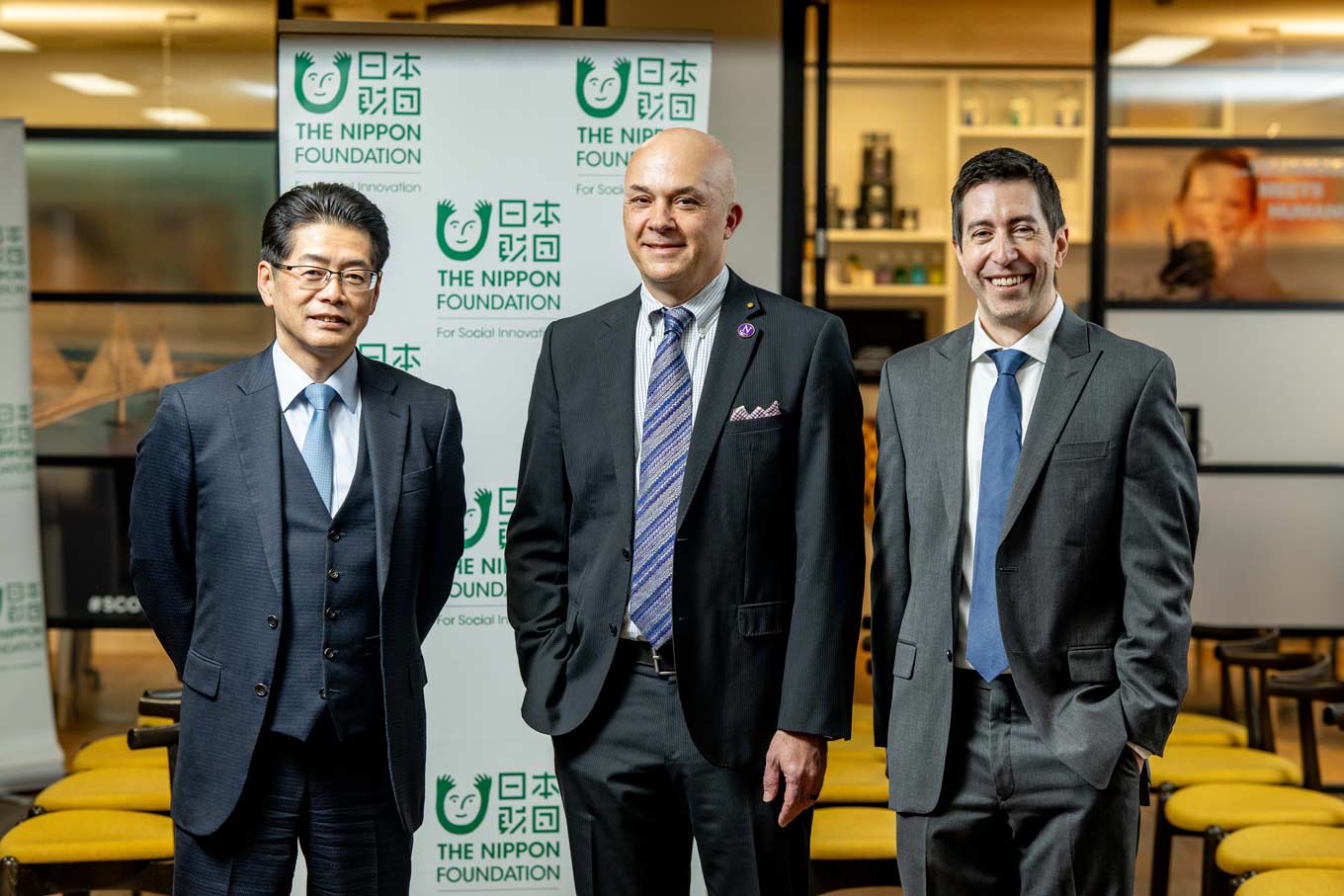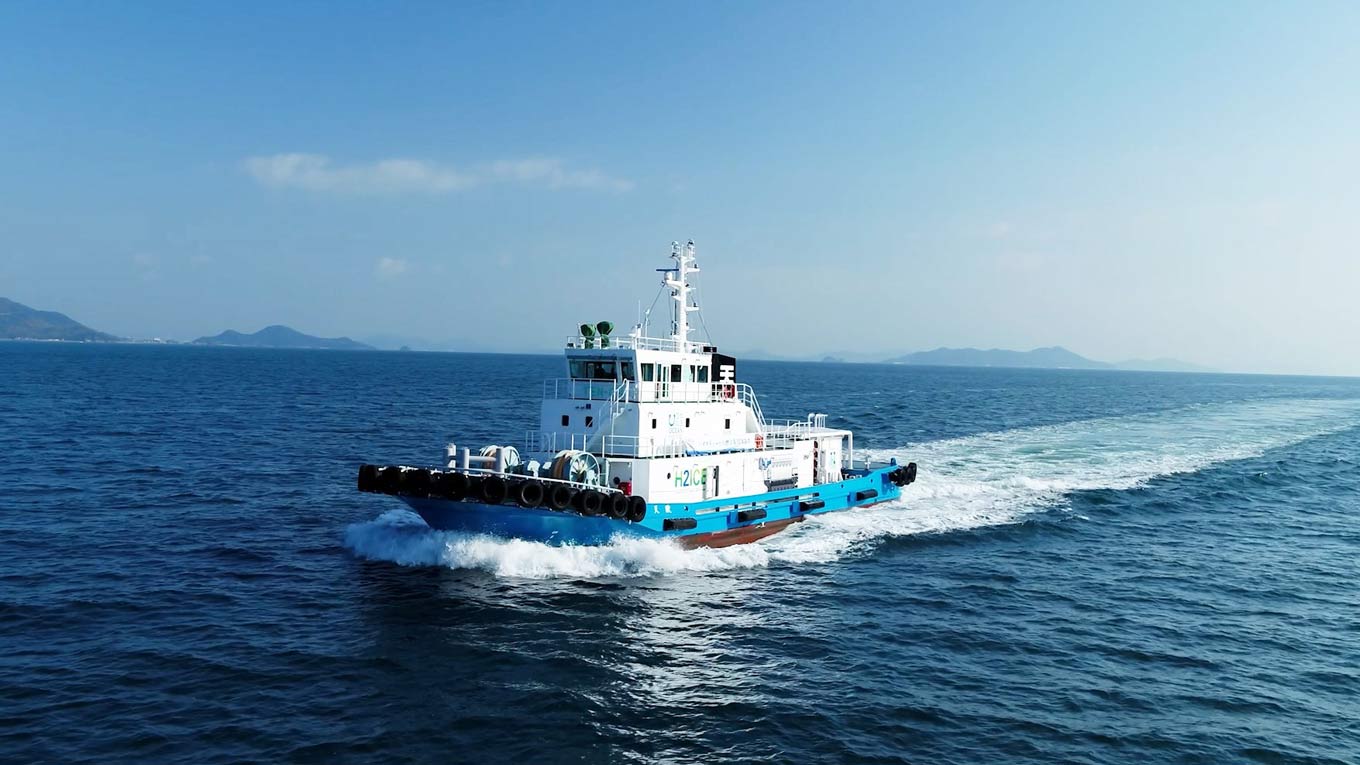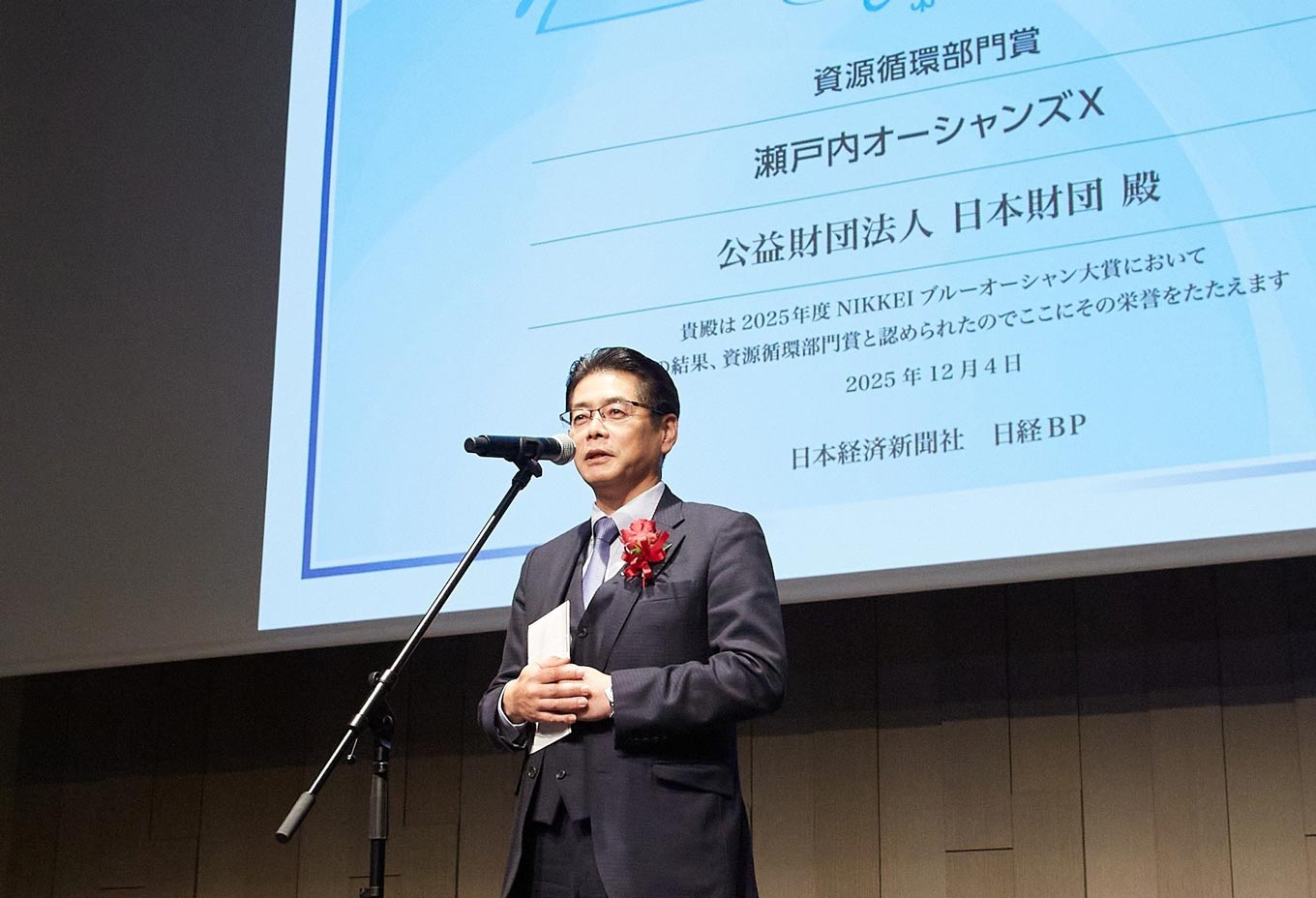Awareness Survey of 18-Year-Olds – 80 Years After WWIIResults of 71st installment announced – More than 40% cite ‘Grave of the Fireflies’ as most memorable work, Japan should aim to be a ‘free and peaceful’ country

The 71st installment of the Awareness Survey of 18-Year-Olds, launched by The Nippon Foundation in October 2018, was carried out on June 13-15 on the theme of “80 Years After WWII,” to examine how the young people of the next generation have learned about the war and what kind of country they think Japan should aim to become.
In terms of their experience learning about World War II, roughly 95% of all respondents replied that they had learned about the war. Two-thirds said that most of what they remember was learned from classes in school, but (with multiple responses possible) more than 30% also cited visits to museums. The top response for books or movies dealing with the war that left an impression on them was “Grave of the Fireflies” (Hotaru no Haka), a short story made into an animated film by Studio Ghibli about the daily struggle to survive for two young, orphaned siblings during the final months of the war, which was cited by more than 40% of respondents. The second-most cited, at roughly 20%, was “Barefoot Gen” (Hadashi no Gen), a manga (Japanese comic book) series by Keiji Nakazawa based on his own experience as a young boy in Hiroshima in the aftermath of the atomic bombing. These were followed by “The Diary of a Young Girl” (also known as “The Diary of Anne Frank”) and the Japanese children’s story “Zoo Without an Elephant” (Zo no Inai Dobutsuen).
On the subject of what kind of country Japan should try to become (with multiple responses possible), the top reply was “A free and peaceful country” at more than 40%, followed by “An economically strong country” in second place and “A disaster-resilient country” in third. “A country with a strong social-safety net” came in fourth, with a response rate 10 percentage points higher among female respondents than among men, while the sixth-highest response, “A country that is able to defend itself,” had a response rate 10 percentage points higher among male respondents than among women.
With the ruling coalition failing to secure a majority of Diet (parliament) seats in the Lower House election held in October 2024 and again in the Upper House election held on July 20, Japan’s future political direction has become increasingly uncertain. When this survey was conducted roughly one month before the Upper House election, free responses to the question “What kind of country should Japan try to become” included “A country that seriously addresses the issues it faces, and that implements policies on behalf of the people,” “A country with politics that functions better than it does today,” and “A country where politics are carried out correctly.” We will continue to conduct surveys to see how young people view this recent election.
Highlights of the 71st Awareness Survey of 18-Year-Olds – 80 Years After WWII
Experience learning about WWII
- Yes – 94.9%
- No – 5.1%
- “Yes” is the total of “Learned a lot,” “Learned somewhat,” and “Learned a little,” and “No” is “Did not learn / Don’t remember learning.”
Books / manga / films dealing with the war that left a memory in particular
- Grave of the Fireflies – 42.2%
- Barefoot Gen – 20.1%
- The Diary of a Young Girl – 8.5%
- Zoo Without an Elephant – 7.7%
The kind of country should Japan try to become (male / female respondents)
- A free and peaceful country – (38.6% / 43.1%)
- An economically strong country – (38.4% / 26.9%)
- A disaster-resilient country – 22.8% / 28.1%)
- A country with a strong social-safety net – (17.5% / 28.3%)
- A country with a rich culture – (21.4% / 22.4%)
- A country that is able to defend itself – (21.4% / 12.9%)
- A country that is strong diplomatically – (15.2% / 12.3%)
Survey Excerpts
Experience learning about WWII
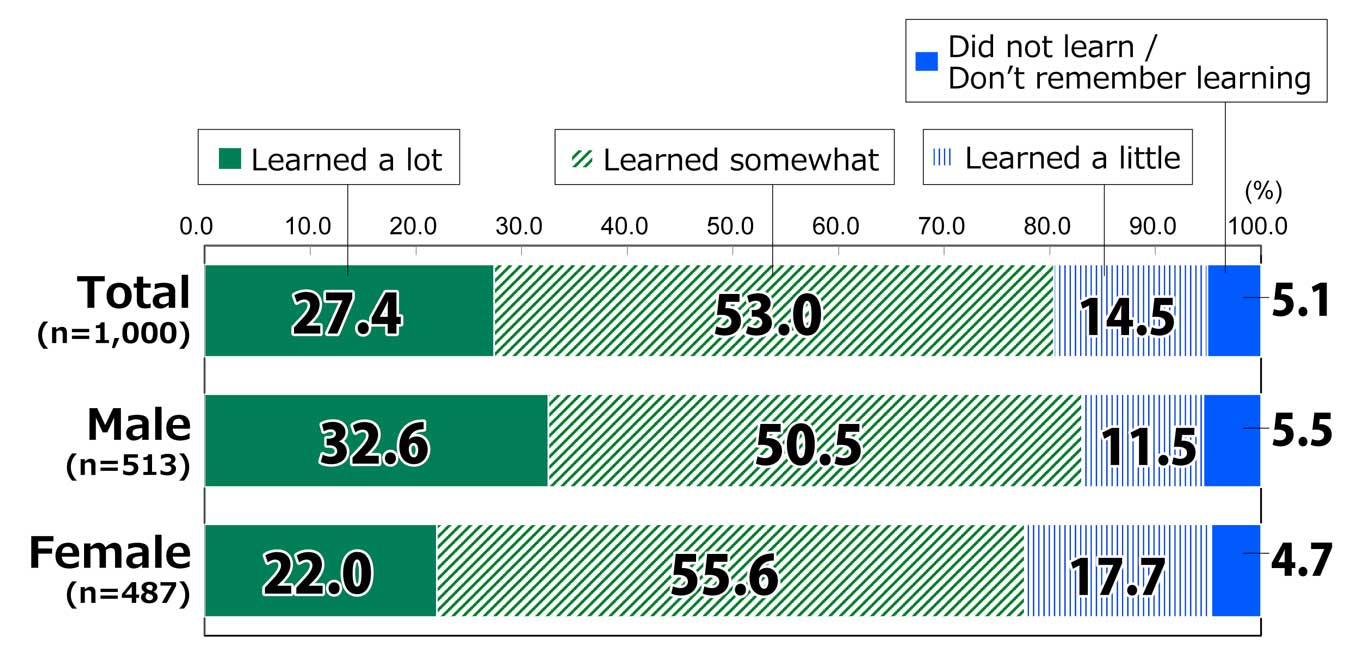
Books / manga / films dealing with the war that left a memory in particular
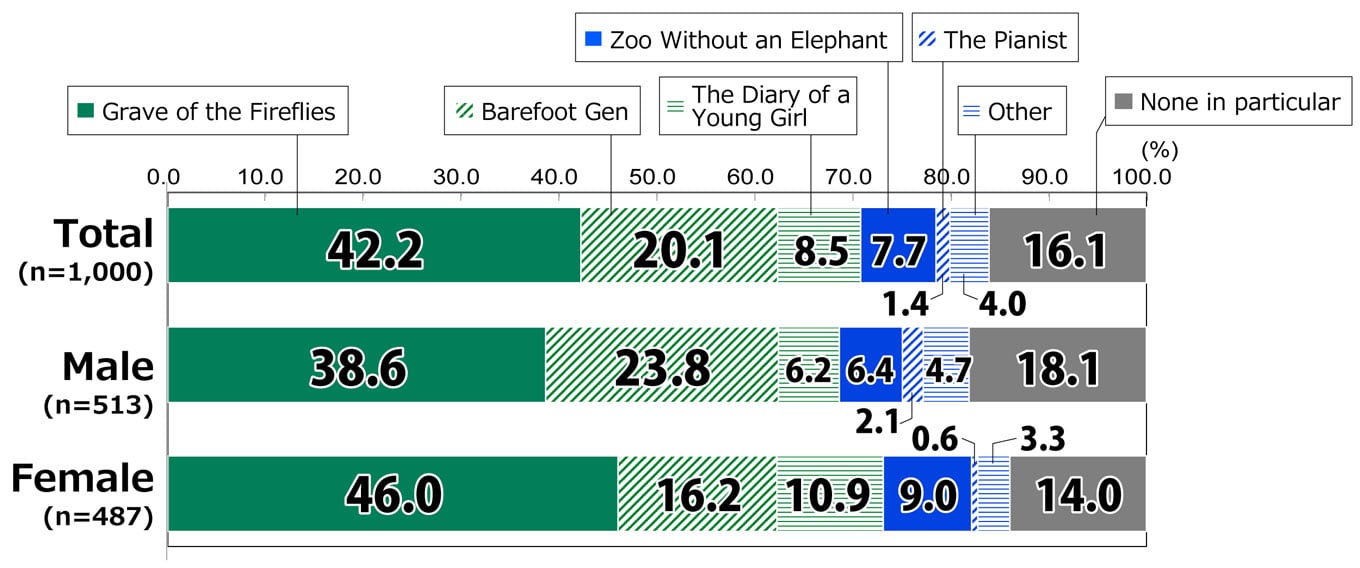
The kind of country should Japan try to become
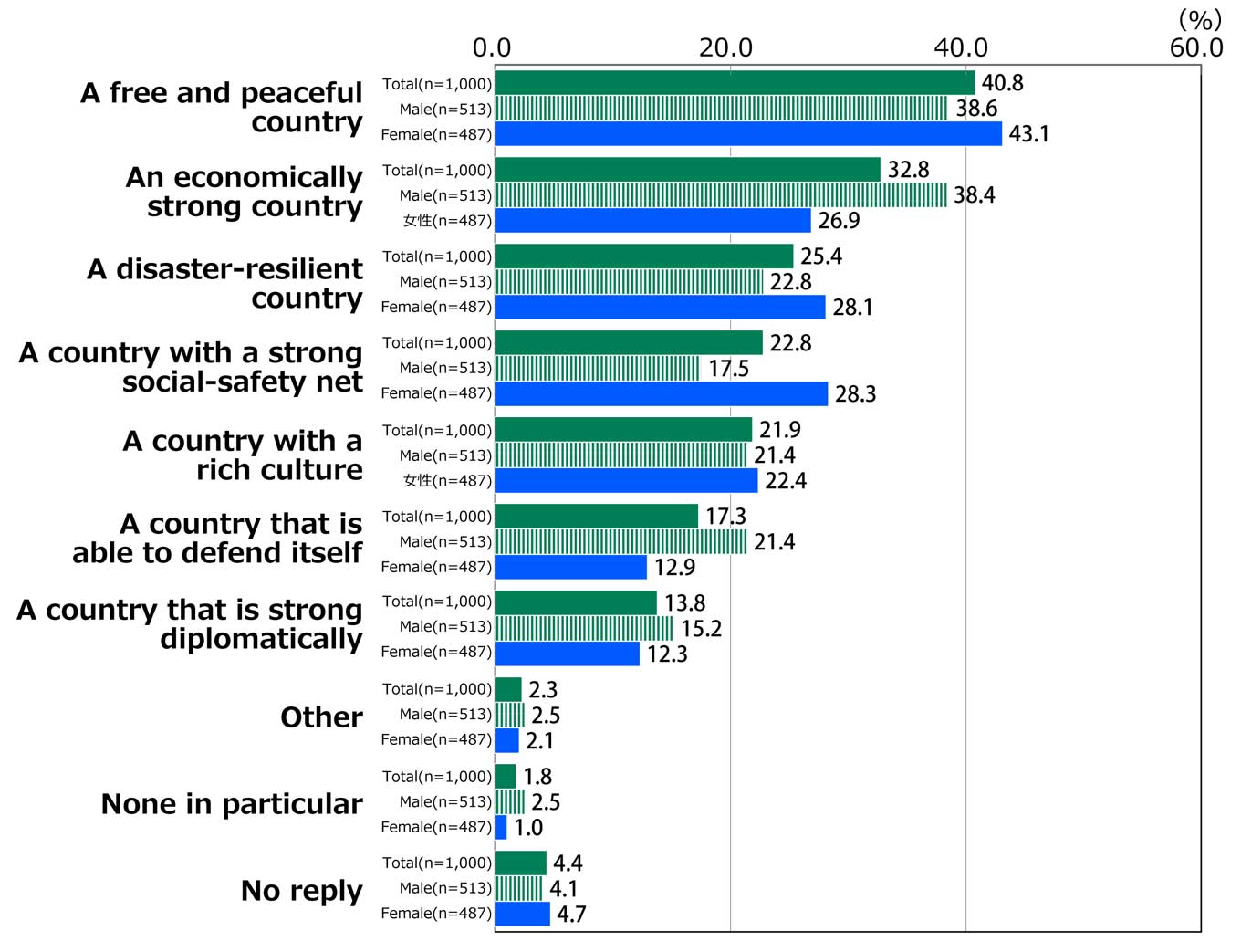
About the Awareness Survey of 18-Year-Olds
Revisions to Japan’s Civil Code lowering the age of adulthood to 18 for a range of activities, including voting, took effect in April 2022, making it even more important to understand and record the awareness of the 18-year-olds who represent Japan’s next generation. With this in mind, in October 2018 The Nippon Foundation launched the Awareness Survey of 18-Year-Olds as an ongoing survey of young men and women across Japan aged around 18, to survey their values, attitudes toward politics and elections, understanding of social issues, and other current themes on an ongoing basis.
About the 71st Installment – 80 Years After WWII
| Survey coverage | 1,000 respondents aged 17-19 from across Japan |
|---|---|
| Survey period | June 13-15, 2025 |
| Survey method | Internet survey |
Related Link
Contact
Global Communications Team
The Nippon Foundation
- Email: info_global_communication@ps.nippon-foundation.or.jp
